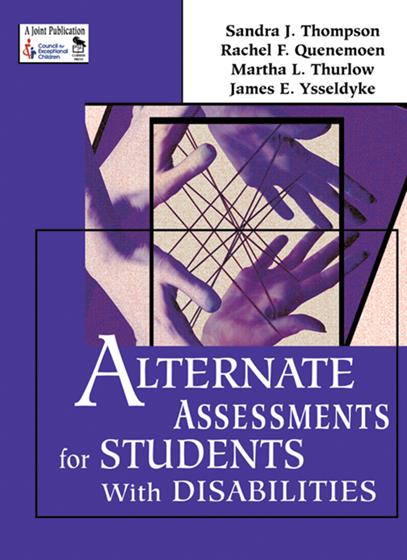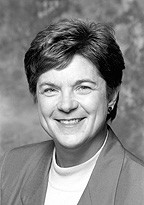A Joint Publication with the Council for Exceptional Children
"The authors clearly explain the "why" of alternate assessment and support this with lots of "how-to" information throughout the book. It is hard to imagine a teacher or administrator who wouldn't gain valuable new skills from reading this book."
Victor Nolet, author
Accessing the General Curriculum
A real-world guide to creating a system of inclusive education . . . measured by inclusive assessments
Students with disabilities need and deserve alternate forms of assessment. They offer greater opportunities for inclusion in general education classrooms, improve the level of education overall, and 'raise the bar' for individual students.
Now a distinguished group of experts in special education have combined current research and a rich variety of case studies to produce a guidebook on alternate assessment—a landmark book for general and special education administrators, teachers, parents, and professionals responsible for development, training, implementation, and continuous improvement of alternate assessments at all levels.
Alternate Assessments for Students With Disabilities will show you:
- How to shift to high expectations for all learners
- How to carefully assess their progress
- How to use the assessment data you gather to improve schooling for them
. . . offering processes and insights based on the real-world experience of states and districts across the country—concrete examples on which professionals can build a solid understanding of alternate assessment.
Thompson and her coauthors offer a "big picture" of high expectations, assessment, and accountability for students with significant disabilities, guiding readers through the process of alternate assessment from beginning to end. Several chapters include examples of worksheets and forms that have worked for some teachers, and in some settings, along with insights into how they can be used to help your students within the context of your own state policies and regulations. Additionally, Alternate Assessments for Students With Disabilities can serve as a resource for planning staff development at the state or district level, and the information can be used by collegial "learning communities" within schools as well.
Given the wide variations in settings and needs, Alternate Assessments for Students With Disabilities is specifically designed to empower you to better understand your own state or district requirements and to get the most out of whatever alternate assessment approach you choose.
All students can learn . . . and Alternate Assessments can be a key to making that a measurable reality in your school.





